Egg mayo sandwich optimisation
how to minimise time-to-sandwich in the kitchen 2025-04-01 #cooking
Goals
This recipe incorporates egg mayonnaise sandwich preparation optimisations that other recipes lack:
- minimise time-to-sandwich, and
- minimise washing up.
To achieve these goals, you will only make a single generous serving.
Ingredients
- 1 egg
- 15 g mayonnaise
- 2 slices of white sourdough bread
- freshly-ground black pepper
- garden cress
Equipment
- boiling water tap
- moka pot
- dessert spoon
- butter/spreading knife
- fork
- small smooth chopping board
- kitchen scales
- stove
1. Boiling
Optimisation: reduce the time to boiling water, and boil less water.
Pour boiling water into a moka pot base, to cover the egg, and put it on the stove:
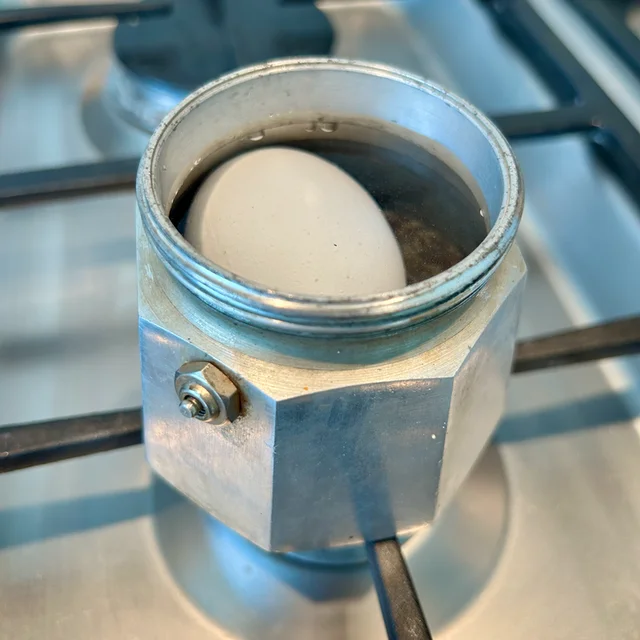
Optimisation: cover the pot with the (inverted) moka pot basket, to retain heat, so you can achieve and maintain boiling temperature with less power:
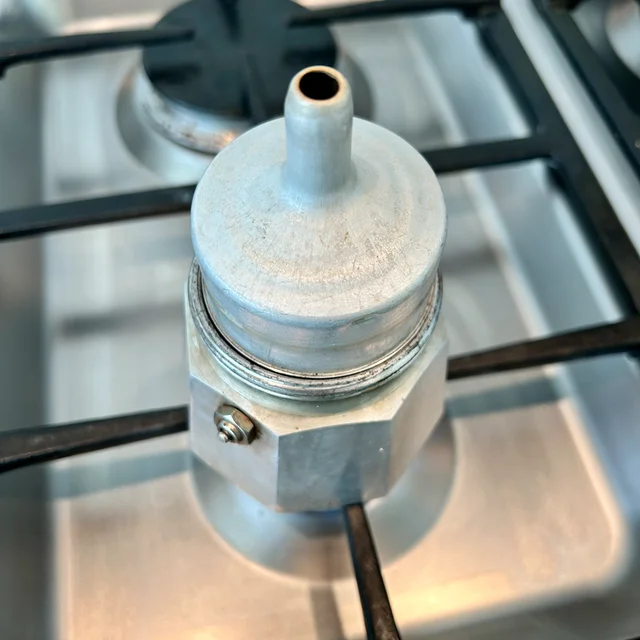
The water returns to the boil within 90 seconds, then continue boiling it for a further 8 minutes.
2. Cooling
Use the spoon to remove the egg, and keep it in place in the sink, while you run it under cold water for 20 seconds:
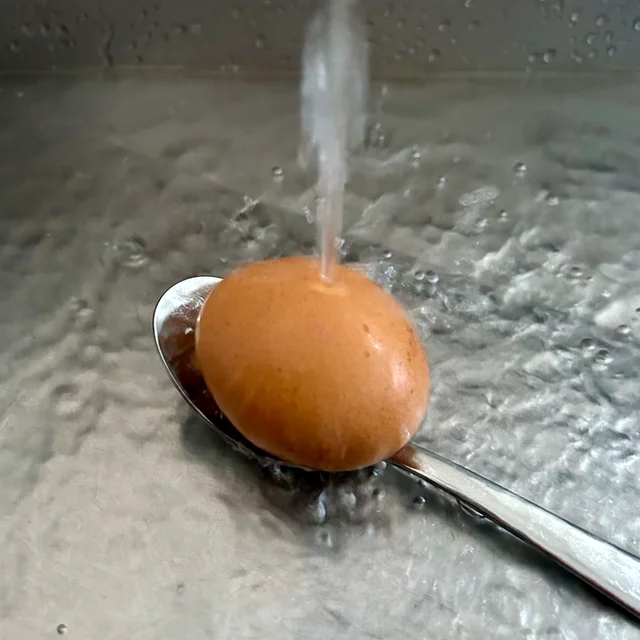
This stops the egg cooking, makes it cool enough to peel, and possibly easier to peel.
3. Mixing
Optimisation: weigh the mayonnaise directly on the chopping board, instead of using a utensil you have to wash up.
Peel the egg. Put the chopping board on the scales, weigh 15 g mayonnaise, and add the other ingredients:
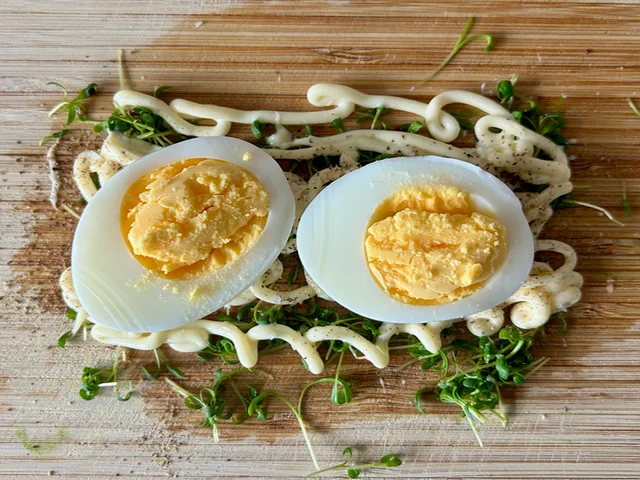
With the fork, mash and mix the ingredients:
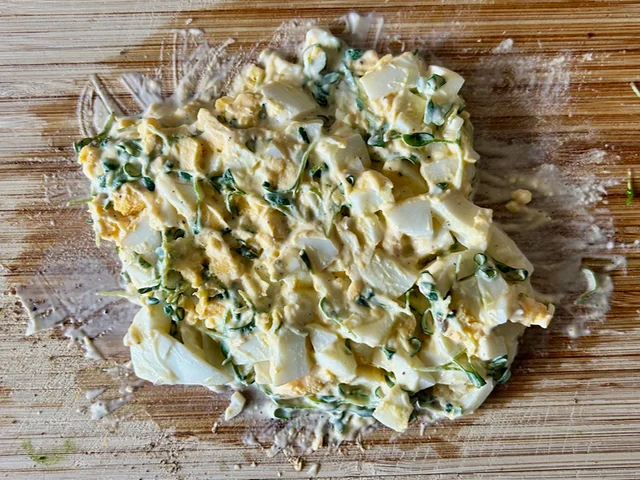
4. Assembly
Optimisation: use the spreading knife to scrape the mixture onto the bread from the board, which takes less time to scrape clean than a round mixing bowl:
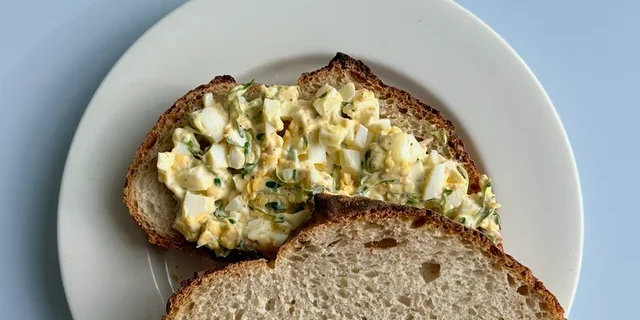
Alternative ingredients

- Japanese mayonnaise and thick-sliced white bread for a simpler flavour, like a tamago sando
- wholemeal or seeded bread instead of white bread, for a more complex flavour
- white pepper instead of black pepper
- rocket instead of garden cress (photo)
Tradeoffs
You get boiling water fastest if you fill the moka pot directly from a boiling water tap, while a kettle costs less and you can travel with one.
Adding salt to the water allegedly makes the egg easier to peel, but without salt makes less of a mess if you spill the water.
You can measure mayonnaise from squeezy bottle or tube faster, but using the knife to get it from a glass jar avoids single-use plastic packaging.
Kitchen scales cost more than a measuring spoon, but don’t need washing up.
The fork makes it easy to mash the egg, but if you chop the egg with the knife, you don’t need the fork.
Further optimisations
Other potential time and ingredients optimisations require further testing.
- Boil the egg from room temperature, instead of fridge temperature.
- Reduce egg cooling time, so cooking continues until egg-mashing, you can further reduce boiling time.
- Reduce cooking time to barely-hardboiled, so you can reduce the amount of mayonnaise.
- Boil the egg in a kettle, so you don’t need a stove.
- Slice the egg directly onto the bread, instead of mashing it, so you don’t need the board.

